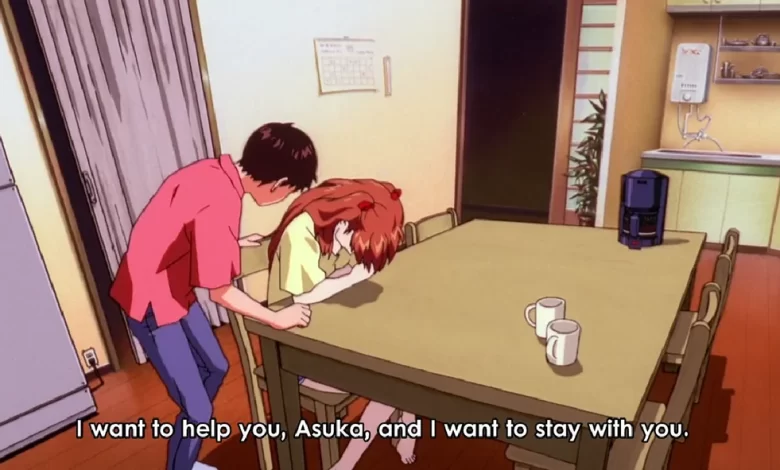
In the realm of storytelling, a powerful narrative is often marked by unexpected twists and turns that leave the audience in awe. The phrase ‘I hated it even more’ in connection with spoilers immediately piques curiosity. This article delves into the enigmatic world of storytelling, exploring instances where spoilers provoke unexpected reactions, turning disdain into fascination. Brace yourself for a journey through the intricacies of narrative craftsmanship that goes beyond conventional expectations.
Unraveling the Power of Spoilers:
Spoilers have become an integral part of our discussions around books, movies, and television series. While some vehemently avoid them, others find the allure of knowing what’s to come irresistible. The phrase ‘I hated it even more’ suggests a unique twist in the spoiler experience, where the revelation not only failed to dampen the audience’s enthusiasm but, intriguingly, intensified their engagement with the narrative.
The Psychology Behind Spoiler Dislike:
To comprehend the allure of the ‘I hated it even more’ spoilers, it’s essential to delve into the psychology of spoiler dislike. Many argue that spoilers diminish the element of surprise, robbing the audience of the joy associated with unexpected plot developments. However, there exists a subset of spoilers that subvert this expectation, sparking a renewed interest in the story.
Unexpected Plot Turns: A Narrative Paradox:
The phrase ‘I hated it even more’ implies a paradoxical relationship between spoilers and audience satisfaction. In traditional storytelling, the unexpected is often lauded as a narrative masterstroke. However, when spoilers reveal these unexpected elements in advance, they can generate a unique form of anticipation and intrigue.
Several examples from literature, film, and television have showcased the power of unexpected plot turns. From classic novels to blockbuster movies, instances where spoilers enhance rather than diminish the audience’s experience are scattered throughout the landscape of storytelling.
Analyzing ‘I Hated It Even More’ Spoilers:
The mysterious and unexpected tale behind the ‘I hated it even more’ spoilers invites us to explore specific instances where this phenomenon occurred. Whether in the form of a book, a film, or a television series, these stories share a common thread of subverting expectations and leaving audiences with a profound sense of satisfaction despite prior knowledge.
- The Classic Novel with a Twist:Imagine a classic novel renowned for its shocking plot twist. Now, picture a scenario where a reader, armed with spoilers, not only anticipates the twist but claims to have enhanced their reading experience. This counterintuitive response challenges our conventional understanding of the impact of spoilers on narrative enjoyment.
- A Cinematic Revelation:In the realm of cinema, certain movies are celebrated for their unexpected endings. However, what if a viewer, armed with spoilers, not only watched the film with heightened anticipation but found the experience to be even more gratifying? This paradoxical scenario invites us to question the traditional narrative expectations surrounding spoilers.
- Television Series Unveiled:Television series often rely on cliffhangers and unexpected developments to keep viewers hooked. What happens when a fan discovers crucial plot points beforehand and claims that the revelation intensified, rather than diminished, their engagement with the show? This twist challenges our understanding of how spoilers impact the viewing experience.
The Intersection of Expectation and Execution:
The ‘I hated it even more’ spoilers prompt a fascinating exploration of the delicate balance between narrative expectation and execution. In traditional storytelling, the element of surprise is often considered sacrosanct. However, these spoilers suggest that when expectations are subverted in an artful and deliberate manner, the result can be a storytelling experience that transcends conventional norms.
Narrative Subversion as a Literary Device:
Authors and creators have, throughout history, employed narrative subversion as a literary device. From the works of Shakespeare to contemporary novels, the intentional disruption of expectations has been a tool for eliciting emotional responses and challenging the audience’s perceptions.
The ‘I hated it even more’ spoilers, in essence, embody the culmination of this narrative subversion. By providing a glimpse into unexpected twists, they invite audiences to appreciate the craftsmanship behind the story rather than merely relying on the element of surprise.
The Role of Community and Shared Experience:
The ‘I hated it even more’ spoilers also underscore the communal nature of storytelling. In an era of online forums, social media, and book clubs, the shared experience of a narrative becomes as significant as the individual encounter. The revelation of spoilers can transform the storytelling experience into a collective journey of anticipation, analysis, and discussion.
Navigating the Spoiler-Phobic Culture:
In a culture that often treats spoilers as taboo, the ‘I hated it even more’ spoilers challenge the prevailing narrative around spoiler aversion. They compel us to reconsider the assumption that knowing the plot twists in advance necessarily diminishes the enjoyment of a story. Instead, they suggest that spoilers, when wielded with purpose and finesse, can enhance the appreciation of narrative complexity and craftsmanship.
Conclusion:
The ‘I hated it even more’ spoilers weave a mysterious and unexpected tale that invites us to question our preconceived notions about the impact of spoilers on storytelling. As we navigate a landscape where anticipation and surprise are revered, these spoilers serve as a reminder that the beauty of storytelling lies not only in the unexpected twists but also in the artful execution of narrative subversion.
Ultimately, the ‘I hated it even more’ spoilers challenge us to embrace the paradoxical nature of storytelling, where knowing more can sometimes lead to a deeper and more nuanced appreciation of the intricate dance between expectation and revelation.



